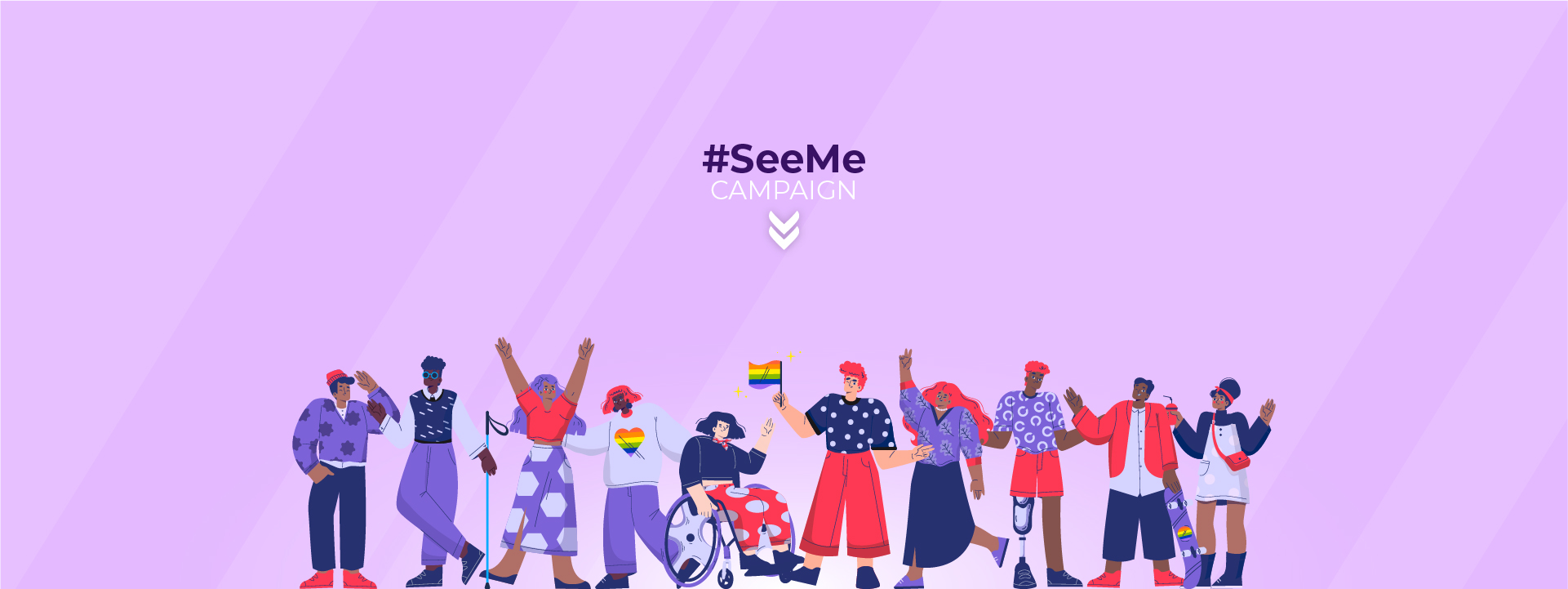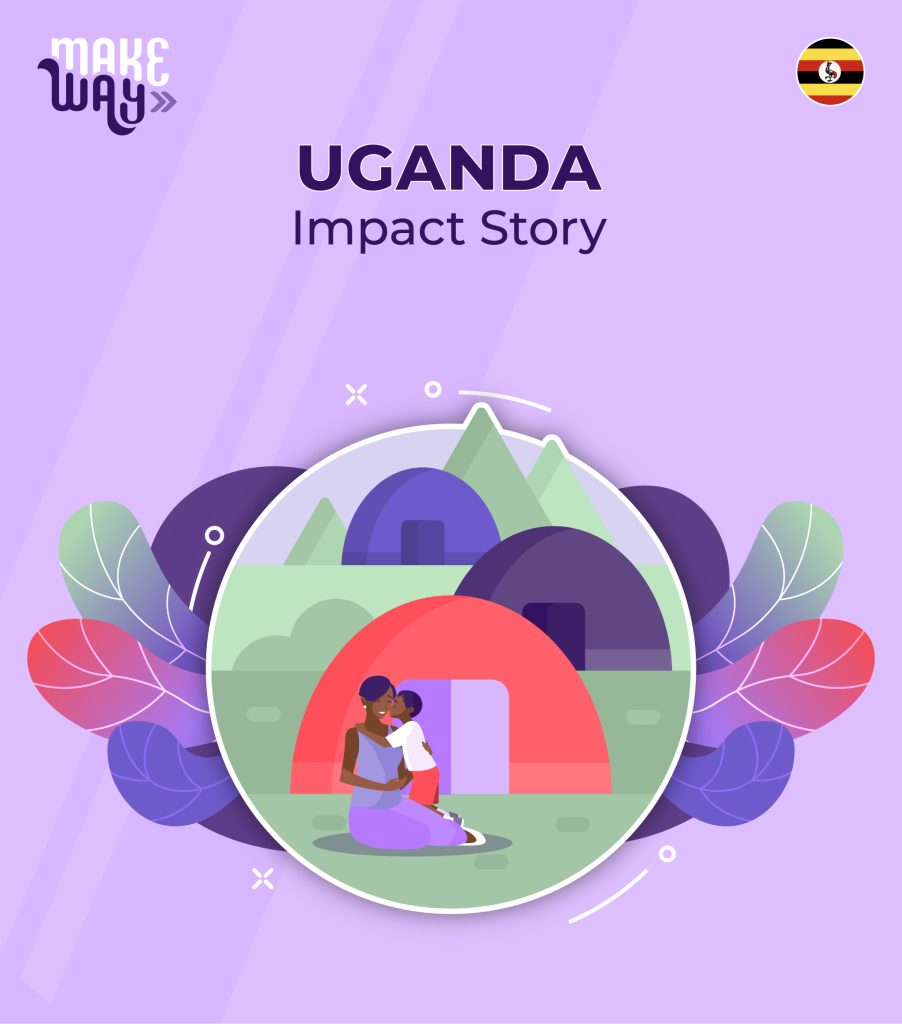Babirye Patience Gloria, Michael Ssemakula and Sylvia Musibega
Make Way youth advocates spearheading SRHR interventions in Uganda’s refugee communities
Babirye Patience Gloria, Michael Ssemakula and Sylvia Musibega
In Uganda, young leaders like Sylvia Musibega and Babirye Patience Gloria are showing what meaningful youth engagement looks like. Through the Make Way programme and partner The Alliance of Women Advocating for Change (AWAC), they create safe spaces where youth in refugee communities can access reliable sexual and reproductive health and rights (SRHR) information and get equipped with livelihood skills. Babirye: “Our diverse identities and lived experiences give us unique insights into the barriers we face in accessing sexual and reproductive health and rights.” By leading change themselves, young people are making SRHR more inclusive, sustainable, and impactful in their communities. Read more →
Sylvia Musibega is one of many Make Way youth champions in various marginalised communities across five countries in which the programme operates. Based in Rhino Refugee Settlement, Madi-Okollo district in Uganda, the 24-year-old mother of one plays a key role in mobilising fellow youth in the community to advocate for access to sexual and reproductive health and rights (SRHR) services, often fostering communication and cooperation between duty-bearers and young people.
At just 22 years old, without access to contraceptive information and services, Sylvia got pregnant. “My partner wanted me to abort but I didn’t want to. He said that even if I had the child, he would not take care of the baby.”
Today, the single mother serves as a key liaison for the youth-friendly corner and safe spaces within her community. These spaces have become vital hubs where young people convene to engage in meaningful conversations and access reliable SRHR information and services.
Trained as a Make Way youth panelist in collaboration with implementing partner, The Alliance of Women Advocating for Change (AWAC), Sylvia has become a trusted resource at the local Ocea Health Centre III in Madi-Okollo District, where she is frequently called upon to mobilise and encourage young women to access essential SRHR services, including HIV testing and appropriate family planning methods.
In refugee settlements, as with many marginalised communities, youth like Sylvia have little to no access to sexual and reproductive health information and services. In addition to regressive cultural and religious beliefs, limited infrastructure and a severe lack of trust in existing healthcare systems, these barriers contribute to early pregnancies and increased vulnerability to sexually transmitted infections among adolescents and young people.
Youth-led advocacy for meaningful change
The Make Way programme believes that young people are experts of their own realities, and focuses on equipping especially vulnerable youths with tools and information to advocate for their own sexual and reproductive health and rights (SRHR).
Babirye Patience Gloria, youth panel representative in Uganda, explains what her role entails: “Being a youth panel member under the Make Way programme is both an honor and a responsibility. It involves representing and amplifying the voices of marginalised youth, especially those living with disabilities, in local, national and global spaces. It means participating in strategy meetings, reviewing programmatic documents, co-creating inclusive solutions and ensuring that our lived experiences shape decisions that affect us.”
Babirye says that she is also involved in organising workshops, participating in dialogues with policymakers and contributing to youth-led initiatives that push for inclusive SRHR policies and practices. Stressing the importance of youth being at the forefront of their own advocacy, she adds: “Our diverse identities and lived experiences give us unique insights into the barriers we face in accessing sexual and reproductive health and rights.”
Impact of livelihood skills for Make Way youth
Among refugee communities in Uganda, The Make Way programme, through its collaborating partner AWAC, supports monthly youth safe space sessions. These offer platforms for the minoritised youths affected by displacement to learn self-advocacy through engagement of duty-bearers. During the sessions, youths also get equipped with livelihood skills such as liquid soap making, as well as financial initiatives like saving groups.
Michael Ssemakula, of Make Way partner The Alliance of Women Advocating for Change (AWAC), says they have integrated modules on livelihood into SRHR interventions so as to equip young mothers with knowledge and skills to take care of themselves and their families.
“Our success stories include young women using their profits from group savings to start micro-businesses, making and selling soap and local snacks, while one has even used her profits to return to school. With these skills, they are able to buy themselves necessities like food and sanitary items – not just for themselves, but for their children too.”
“Regular convening and saving groups have also provided solidarity and community for the youth, strengthening the groups’ social cohesion which makes it easier for us to monitor progress,” Ssemakula adds.
Reflecting on the impact her position as a youth leader has had on the community, youth champion Sylvia says that young people are now more open to seeking family planning services and engaging in HIV prevention with her as a liaison; ensuring their voices are heard and their needs are met.
Article by Edna Ninsiima.





